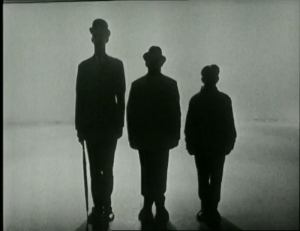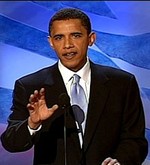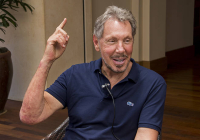
There are the highly educated with their hands on the code. Then there are the uneducated whose actions are controlled by the code.
The result is that instead of having three economic classes in America we mostly have two. Both sides feel bad about it.
The controlling class, understanding that human potential has value, support all kinds of aid to the controlled. We’re liberals. We’re “woke.” We oppose discrimination because it’s inefficient. We support education because we want more of us. Health care, infrastructure, all the social costs that let us focus on the work we do rather than the rest of life, we’re all for it.
The controlled class sees accepting aid as demeaning and they have they pride. It may be all they have, but it’s a potent political force. Knowing that they lack skills, they’re also deathly afraid of being replaced. They lash out in anger at anyone they think might do this – at minorities, at gays, at smart women. They’re focused on protecting what they have.

This has created a very strange class system, in which both sides act against their own interests. Controlling people are aligned with the liberals, controlled with the conservatives, when in the industrial model it was always the other way around.
Why isn’t it? For the controlling or creative class, it’s because the gating factor to growth is human capital. There’s no limit to it. If we have twice as many highly motivated people looking at code and creating things from it, we can get nearly twice as much growth. Brains are what we need. Educated, motivated, empowered, and free brains are what make money in our time. We’re not threatened by people coming up from below. We welcome them, assuming they accept the values that made them valuable.
For the controlled class, it can seem like the only thing holding you up from the abyss are your advantages. It could be your family’s money. It could be your skin color. It could be your religion. All these things exclude some other. They maintain the tenuous status quo that seems to keep you fed.

Breaking through the class struggle is the great political test of this decade.
The Biden Administration really believes that making lives better for everyone, the controlling and controlled, will lead to a new consensus. I wrote about this consensus when it first emerged, under Barack Obama. It seemed obvious to me at the time that this was how politics would go. But then, I’m in the controlling class.
My relatives who live in the controlled class look at things differently. Still. They still fear “the other,” believing there’s a limit to growth, a limit to wealth, and that only by keeping what they have can they survive.
How do we break through?









